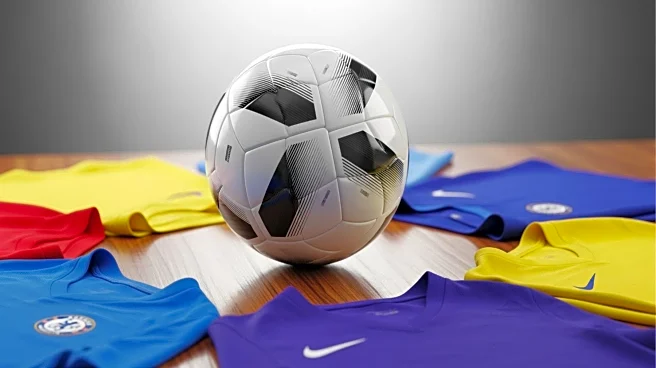What's Happening?
Wayne Rooney has called on Chelsea players to question manager Enzo Maresca's rotation policy following a 2-2 draw with Qarabag in the Champions League. Maresca made seven changes to the starting lineup,
continuing a trend of frequent alterations. Rooney, speaking on his show, emphasized the importance of player consistency and relationship-building, suggesting that constant changes could lead to dissatisfaction among players. Despite Chelsea's recent successes, including a Club World Cup title, Rooney believes the leadership group within the squad should address the issue.
Why It's Important?
Rooney's comments highlight the ongoing debate about team rotation in professional sports, particularly in high-stakes competitions like the Champions League. Frequent changes can disrupt team chemistry and performance, potentially affecting Chelsea's standing in the league and international tournaments. The situation underscores the balance managers must strike between resting players and maintaining a cohesive team dynamic. Chelsea's approach could influence other clubs facing similar challenges, impacting strategies across the league.
What's Next?
Chelsea's leadership group may engage in discussions with Maresca to address concerns about the rotation policy. The team's performance in upcoming matches will be closely watched to assess the impact of these changes. Stakeholders, including fans and analysts, will monitor how Chelsea navigates this issue and whether adjustments are made to the rotation strategy. The outcome could influence managerial practices and player management in the broader soccer community.
Beyond the Headlines
The debate over rotation policies touches on broader themes of player welfare and management strategies in sports. Balancing player rest with performance demands is crucial for long-term success and athlete health. Rooney's comments reflect the growing influence of player voices in team decisions, challenging traditional power dynamics between management and athletes. This shift may lead to more collaborative approaches in sports management.









